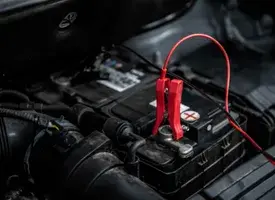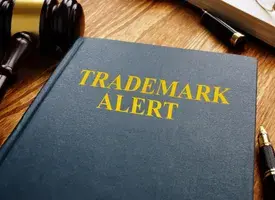Trademark Infringement and Passing Off
Trademark Infringement in India
Infringement– Section 135 of the Trade Marks Act recognizes both infringement as well as passing off actions. Violation of exclusive rights of a registered owner of a trade mark, in the absence of license or approval from the registered owner/proprietor, amounts to infringement. There are basically two types of infringement-
- Direct infringement[3]– When violation of a registered trade mark is done by an unauthorized individual/person, when the unauthorized person uses a mark identical, similar or deceptively similar to the registered mark and such unapproved and unauthorized use must be for the usage and propagation of products and services under the same class.
- Indirect Infringement- There is no direct reference to indirect infringement in the Act, although liability lies for such an indirect infringement too.
- Vicarious liability- In this scenario, not just the principal infringer but the whole body/entity/company would be held liable except the one who is completely without knowledge of the commission of offence. Basically, in order to hold other persons liable except the principal infringer, they must have knowledge of the infringement, they must contribute to the same, they must be deriving financial gains from such infringement.
- Contributory infringement– In this scenario, all the persons contributing to the infringement and its abetment are liable. As the term suggests, it is group effort and all are responsible therein.
Trademark- Passing Off in India
On the other hand, passing off is a kind of tort and cannot be initiated if the mark is unregistered. Such an action of passing off can be initiated by the owner or user of the product/service/brand against someone or some company/entity who misrepresents and misleads the public at large. “No men can have any right to represent his goods as the goods of another person”. Relief of passing off can be granted only when actual damage or fraud has been committed and proved by the aggrieved.
The purpose behind passing off action is to enforce rights over an unregistered trade mark. In order to claim the action of passing off, the aggrieved needs to pass a trinity test or needs to prove the presence of the major elements[4]–
- Reputation and goodwill
- Misrepresentation by use of similar marks
- Damage accrued by the aggrieved
Registration of a trademark is not a necessary to institute a civil or criminal action against violation of trademarks. Both civil action for infringement of trademark and passing off can be initiated. Moreover, infringement of trade mark comes under the purview of cognizable offences as well and hence, criminal actions may also be taken against the wrong doers.
Jurisdiction in Trademark litigation matters
The following three major factors are adhered to while deciding jurisdiction in case of trade mark infringement/passing off suit-
- Territorial jurisdiction,
- Pecuniary jurisdiction,
- Subject-matter jurisdiction.
It is pertinent to mention that above all, cause of action is the factor of utmost importance. It is that one element that plays key role in deciding jurisdictional issues, cost of the suit or pecuniary value.
According to Section 134 of the Trademarks Act, 1999, one can file suit for infringement before any District/High Court having Ordinary Original Civil Jurisdiction. For passing of, jurisdiction lies with every Court which is not below a District Court.
The Hon’ble Supreme Court of India passed a landmark judgment in India Performing Rights Society Limited vs. Sanjay Dalia & Anr . emphasizing on Section 134 (2) of the Trade Mark Act, 1999 and Section 62 (2) of Copyright Act. In this case, the suit was instituted at Delhi High Court proclaiming jurisdiction based on a branch office of plaintiff at Delhi while the place of business of the Plaintiff, Defendant and the infringement took place at Mumbai. However, the Court held that:
“20. In our opinion, in a case where the cause of action has arisen at a place where the plaintiff is residing or where there are more than one such persons, any of them actually or voluntarily resides or carries on business or personally works for gain would oust the jurisdiction of other place where the cause of action has not arisen though at such a place, by virtue of having subordinate office, the plaintiff instituting a suit or other proceedings might be carrying on business or personally works for gain.”
“21. Section 134 of the Trade Marks Act has removed the embargo of suing at place of accrual of cause of action wholly or in part, with regard to a place where the plaintiff or any of them ordinarily resides, carries on business or personally works for gain. We agree to the aforesaid extent that the impediment imposed under Section 20 CPC to a plaintiff to institute a suit in a court where the defendant resides or carries on business or where the cause of action wholly or in part arises, has been removed. But the right is subject to the rider in case the plaintiff resides or has its principal place of business/carries on business or personally works for gain at a place where cause of action has also arisen, suit should be filed at that place not at other places where the plaintiff is having branch offices, etc.”
This decision was followed by Delhi High Court in the case of Ultra Home Construction Pvt. Ltd. vs. Purushottam Kumar Chaubey In this case the Court held that, Plaintiff must contest a suit for infringement at Defendant’s place of business, if Plaintiff has a secondary office at that place instead of suing at its own place of registered office or principal place of business. The Division Bench of Delhi High Court in the case of RSPL vs. Mukesh Sharma & Anr reiterated and upheld the decision of Delhi High Court in Ultra homes.
Online Jurisdiction
The Delhi High Court in the case of Banyan Tree Holding (P) Limited v. A. Murali Krishna Reddy and Anr[5] passed a landmark judgment on the issue of online jurisdiction. In this case a suit was instituted for passing off action by the Plaintiff against the Defendants for misusing the website name i.e., www.banyantree.com and www.banyantreespa.com as ‘Banyan Tree Retreat’ and website comprising of the term “Banyan Tree”. One of the most issue was that, both the parties did not have or were situated/located within the limits of territorial jurisdiction of the Court. The Hon’ble Court held that simply accessing and using a website in Delhi or any other state would not satisfy the jurisdictional qualifications of that Court. On the contrary, it needs to be revealed that the infringer or the opposite party intentionally opted for such jurisdiction, by portraying that such use of the infringing website by the Defendants/infringers was mala fide and with the intention to extract commercial transaction and financial gains, thereby resulting in injury to the aggrieved/Plaintiff.
In the present case, the intention of the Defendant was prima facie to deceive the viewers and customers by use of the concerned website with ill-intention to extract commercial transaction, focusing on the forum state resulting in injury to the aggrieved in the forum state. Hence, the Hon’ble Court was of the view that, the aggrieved/Plaintiff needs to prove a prima facie case that the concerned website is precisely besieged at users in the forum state for commercial transactions and financial gains.
Penalties and Reliefs granted
- Earlier only temporary or permanent injunction, damages, costs of litigation, damages, accounts of profits, destruction of inventory, goods/products and rendition of accounts was available in cases of infringement and passing off.
- In other cases, the aggrieved may approach the Hon’ble Court for appointment of Local Commission for conduction of raid, search and seizure, to seal infringers’ property by way of Anton Piller injunction, to freeze assets, products, inventory of the defendant or infringer by way of Mareva injunction etc. As per Intellectual Property Rights (Imported Goods) Enforcement Rules, IP owners may register their rights over the concerned product or services with Customs Department and protect themselves against imports of counterfeit goods and products.
- In the case of Cartier International AG v Gaurav Bhatia (226(2016) DLT662) the Hon’ble Delhi High Court granted the highest ever punitive damages, worth Rs 10 million, for the infringement of trademarks and selling of counterfeit luxury brands online. In another landmark case[6], the Hon’ble Court granted costs and damages to the aggrieved in a preliminary judgment. It is one of the very infrequent occurrences.
- Generally, John Doe orders are issued in a strong prima facie cases. The Hon’ble Delhi High Court in the case of Louis Vuitton Mattetier v Aggarwal (CS (OS) 2296/2011) issued a John Doe order along with an Anton Piller order, permitting and allowing the aggrieved to conduct raids over a period of one-month, for tracing counterfeit Louis Vuitton products and goods. Such an act would enable impleadment of each party dealing with counterfeits.
- Plea bargaining is a pretrial negotiation between the accused and the prosecution wherein the accused agrees to plead guilty in exchange for certain concessions by the prosecution. It is a bargain where a defendant pleads guilty to a lesser charge and the prosecutors in return drop more serious charges. In State v Prakash (FIR 189/05 (Del)), the Hon’ble Court settled the matter by way of a plea bargain, following which the accused parties paid a fine of $222 each.
Well-known trademark in India
According to Section (2) (1) (zg) of the Trademarks ACT, 1999, a well-known mark is defined as “a mark which has become so to the substantial segment of the public which uses such goods or receives such services that the use of such mark in relation to other goods or services would be likely to be taken as indicating a connection in the course of trade or rendering of services between those goods or services and a person using the mark in relation to the first mentioned goods or services.”
A few remedies are available to owners of well-known marks for protection against infringement such as, not allowing registration of similar or deceptively marks in the first place, removal of infringing marks, punitive damages. The Hon’ble Delhi High Court in the case of Time Incorporated v. Lokesh Srivastava [2005 (30) PTC 3 (Del.)], observed that punitive as well as compensatory damages are equally important to prevent the infringers from using well-known marks and earning financial gains from the same. The Delhi High Court in the case of Exxon Mobil Corporation v. Exoncorp Private Ltd. CS (COMM) 111/2019 answered the question the whether trade mark infringement would take place or arise if the place of business and services do not match and are different. The Hon’ble Court held that, if the concerned mark is a well- known mark within the definition under Section (2) (1) (zg) of the Trademarks Act, such mark would be protected irrespective of the use of the mark for other goods and services for which it may not even be registered.
Related Articles
Territorial Jurisdiction of Delhi High Court in Trademark Infringement cases
[1] Park’N Fly, Inc.v. Dollar park and Fly,Inc. 469 U.S 189(1985)
[2] 692 F.2d 1250 –
[3] Section 29 of Trademarks Act, 1999
[4] Reckitt & Colman Products Ltd. v. Bordan Incorporation.
[5] CS (OS) No. 894/2008
[6] Philip Morris Products SA v Sameer (Bombay) (2014(58)PTC317(Del)) and Philip Morris Products SA v Singh (Kolkata) (209(2014)DLT1 )
For more information on Trademark Litigation in India, you may write to us at: info@ssrana.com
trademark-litigation-faq
Trademark is said to be infringed when a registered trademark is
used by a person who is neither the registered proprietor nor the licensee of
the said trademark in relation to the goods or services for which it is registered.
Trademark infringement in India means violation of the exclusive rights granted
to the registered proprietor under the Trade Marks Act, 1999 to use the same in
relation to the goods or services in respect of which the trade mark is
registered. Section 29 and Section 30 of the Trade Marks Act, 1999 lay down the
provisions for protection of a registered trademark in case the same is
infringed upon by a person not being a registered proprietor or licensee.
Passing off action arises when an unregistered trademark is used
by a person who is not the proprietor of the said trademark in relation to the
goods or services of the trademark owner.
Passing off in India is a tort actionable under common law and mainly used to
protect the goodwill attached with the unregistered trademarks. It is founded
on the basic tenet of law that one should not benefit from the labour of
another. Section 27 of the Trade Marks Act, 1999 provides that no infringement
action will lie in respect of an unregistered trade mark but recognizes the
common law rights of the trade mark owner to take action against any person for
passing off their goods/services as the goods of another person or as services
provided by another person.
Infringement of a Trademark in India means violation of the exclusive rights granted to the registered proprietor under the Trade Marks Act, 1999 to use the same in relation to the goods or services in respect of which the trade mark is registered. Section 29 and Section 30 of the Trade Marks Act, 1999 lay down the provisions for protection of a registered trademark in case the same is infringed upon by a person not being a registered proprietor or licensee.
Section 29 of the Trade Marks Act, 1999 provides that a registered trademark is infringed when a person not being a registered proprietor or licensee, uses in course of trade;
1. Identity with Registered Mark and Similarity of Goods / Services
A Mark which is identical to the registered trademark and there is similarity of the goods or services covered by the trade mark in a manner causing confusion to the general public; or
2. Similarity with Registered Mark and Identity of Goods / Services
A Mark which is similar to the registered trade mark and there is an identity or similarity of the goods or services covered by the trade mark in a manner causing confusion to the general public; or
3. Identity with Registered Mark and Identity of Goods / Services -Presumption of Confusion
A Mark which is identical to the registered trademark and there is similarity of the goods or services covered by the trade mark. It is pertinent to note that in such cases the Courts will presume that such use will cause confusion on part of public; or
4. Identity with Registered Mark having Reputation
A Mark which is identical or similar to the registered trademark having reputation in India, even if such mark is used in relation to goods or services which are not similar to those for which the trademark is registered?
5. Similarity of Trade Name with Registered Trade Mark
A trade name or part of trade name and such concern is dealing in the goods or services in respect of which the trade mark is registered.
6. Application of Registered Mark on Labelling or Packaging etc. with knowledge that such application is without Authorisation
Applies registered trademark to material intended to be used for labeling, packaging, business paper or advertisement provided such person when he applied the mark knew or had reasons to believe that the application of the mark was not duly authorised by the Registered User or Licensee thereof.
7. Use of Registered Trademark in Advertising, when such use takes unfair advantage, is detrimental or against the reputation of registered Trademark
An advertising using a registered trademark and such advertising;
- takes unfair advantage of and is contrary to honest practices in industrial or commercial matters; or
- is detrimental to its distinctive character; or
- is against the reputation of the trade mark.
Section 30 of the Trade Marks Act, 1999 provides limits on the effect of registered trademarks and also enumerates certain acts which do not constitute brand infringement. These acts are also used as defense in suits for brand infringement of trademarks and an infringer may escape his liability if his use of the registered trademarks falls within the ambit of the section. Section 30 of the Trade Marks Act, 1999 provides that there is no infringement of registered trademark;
1. Use of Mark to indicate the kind, quality, quantity etc.
When the infringing mark is used in relation to goods or services covered by the registered trademark to indicate the kind, quality, quantity etc. of the goods or rendering of services. For example in a case before the Delhi High Court proprietor of the mark “RICH’S WHIP TOPPING” registered in Class 30 for non-dairy topping, icing, filling and generally for other goods in that Class instituted a trademark infringement proceedings and passing off action against the user of the mark “BELLS WHIP TOPPING”. The Delhi High Court in this case held that as the word “WHIP TOPPING” is indicative of quality of goods sold under and its use can not be considered as infringement of registered trade mark “RICH’S WHIP TOPPING” unless it is established that the mark “WHIP TOPPING” has acquired secondary meaning.
2. Use of Mark, which is outside the scope of Registration
When the registered trademark is registered subject to conditions or limitations and the trademark is used in a manner, which outside the scope of registration. For instance; a trademark such as “ABC Garden Market” may be registered with the condition that the registered proprietor will not have the exclusive right to use the words “Garden” and/or “Market”. In such case use of the words “Garden” and/or “Market” by person will not amount to infringement of the registered trademark.
3. Implied Consent for Use
Where a person uses the mark in relation to goods or services for which the registered owner had once applied the mark and had not subsequently removed it or impliedly consented to its use;
4. Use of Registered Trademark in relation to parts and accessories etc.
A trade mark registered for any goods may be used in relation to parts and accessories to other goods or services and such use is reasonably necessary and its effect is not likely to deceive as to the origin;
5. Use of two Registered Trademarks identical or similar to each other
The use of registered trade mark being one of two or more registered trade marks, which are identical or similar in exercise of the right to the use of that registered trade mark.
Brand Infringement Online
With the rise in E-commerce and online digital platforms, the issue of brand infringement on online platforms has become a concern. The remedies and legal action available in case of infringement through the physical mode will be applicable to infringement taking place through the online mode.
Related Posts
Suit for Groundless Threats and Declaration of Non-Infringement a real mischief!
Section 27 of the Trade Marks Act, 1999 provides that no infringement action will lie in respect of an unregistered trade mark but recognizes the common law rights of the trade mark owner to take action against any person for passing off their goods/services as the goods of another person or as services provided by another person.
It has been settled in catena of authorities that essential characteristics of a passing off action are as follows:
- Misrepresentation;
- Made by a person in the course of trade mark;
- To prospective customers of his or ultimate consumers of goods or services supplied by him;
- Which is calculated to injure the business or goodwill of another trade;
- Which causes actual damage to a business or goodwill of the trade by whom, the action is brought or well probably do so.
In a typical suit for Passing off, the Courts generally frame following issue / questions for consideration and determination:-
- Whether the Plaintiff is prior user of the mark in point of time.
- Whether the goods of the Plaintiff have acquired distinctiveness with any name or mark and are associated in the minds of the general public as those of Plaintiff.
- Whether there is a misrepresentation by the Defendant with regard to his goods and such misrepresentation is likely to lead to confusion in the minds of the people as a result whereof they may treat the goods of the Defendant as those of the Plaintiff.
The Courts generally consider the following factors in order to determine and adjudicate aforesaid issues;
- The nature of mark i.e. whether the marks are word marks or label marks or composite marks, i.e. both words and labels works.
- The degree of resembleness between the marks, phonetically similar and hence similar in idea.
- The nature of the goods in respect of which they are used as trade marks.
- The similarity in the nature, character and performance of the goods of the rival mark.
- The class of purchasers who are likely to buy the goods bearing the marks they require, on their education and intelligence and a decree of care they are likely to exercise in purchasing and/or using the goods.
- The mode of purchasing the goods or placing orders for the goods.
- Any other surrounding circumstances which may be relevant in the extent of dissimilarity between the competing marks.
The difference between Infringement and Passing Off of a trademark are given below:
| Infringement | Passing off |
| Statutory remedy | Common Law remedy |
| Registration of trademark is required | Registration of trademark is not a pre-requisite |
| Plaintiff is only required to establish that infringing mark is deceptively similar to the registered mark in respect of similar goods / services and no further proof is required afterwards as there is presumption of confusion | Plaintiff is not only required to establish deceptive similarity of two contesting mark but also require to prove deception or confusion among public and likelihood of injury to the plaintiff’s goodwill |
| Prosecution under Criminal remedies is easier | Prosecution under Criminal remedies is relatively harder |
| Benefit of instituting the suit under Section 134 of the Trade Marks Act, 1999 is available wherein the registered proprietor or registered user of the trademark can institute the suit where they actually and voluntarily resides or carries on business or personally work for gain | Such benefit is not available and the regular rules of jurisdiction provided under Section 20 of Civil Procedure Code, 1908 apply i.e. Passing off action has to be filed where the Defendant resides or carried on business or cause of actions has arisen. |
An action for Infringement for registered trademark or tort of Passing off for both registered as well as unregistered trademark are essentially two ways of achieving the same objective i.e. protection of goodwill attached with a mark. In India a combined action for infringement and passing off is permissible. However, both are technically two different concepts and the difference between the two is highlighted above.
How to decide where to file a suit for infringement or passing
should be filed in India?
One of the most important practical benefit given under Section 134 of the
Trade Marks Act, 1999 is that a suit for infringement can also be instituted
before a District Court / High Court (enjoying Ordinary Original Civil
jurisdiction such as High Court of Delhi, Bombay, Calcutta or Madras), within
the local limits of whose jurisdiction, at the time of the institution of the
suit, the person instituting the suit, actually and voluntarily resides or
carries on business or personally work for gain. The person includes the
registered proprietor and the registered user.
On the other hand the suit for passing off can only be instituted before a District Court, within the local limits of whose jurisdiction;
- The Defendant is residing, working for gain or carrying on its business; or
- Cause of action has arisen
The Trade Marks Act 1999 provides that the proprietor or a licensee of a registered trademark may give notice in writing to the Commissioner of Customs to, prohibit the importation of any good if the import of the said good constitutes an infringement under the said Act.
What are the border measures for trademark protection in India?
The Indian Customs Act 1962 confers power on the Central Government to prohibit importation or exportation of goods that have applied a false trade-mark or a false trade description.








